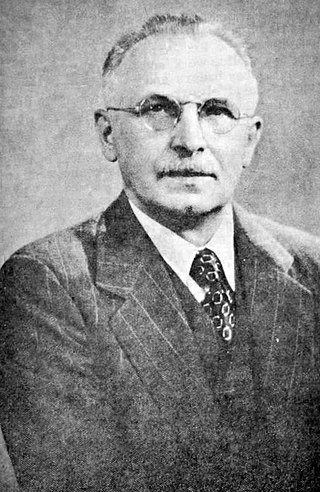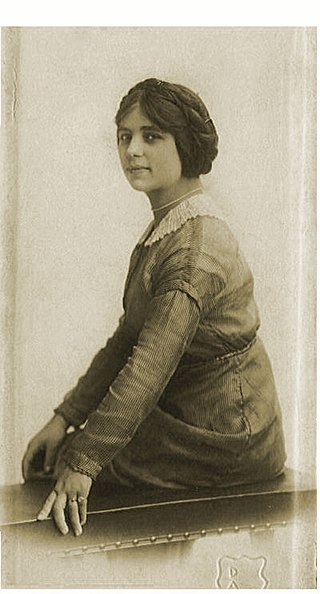
Syndicalism is a revolutionary current within the labour movement that, through industrial unionism, seeks to unionize workers according to industry and advance their demands through strikes, with the eventual goal of gaining control over the means of production and the economy at large through social ownership. Developed in French labor unions during the late 19th century, syndicalist movements were most predominant amongst the socialist movement during the interwar period that preceded the outbreak of World War II.
Anarcho-syndicalism is a political philosophy and anarchist school of thought that views revolutionary industrial unionism or syndicalism as a method for workers in capitalist society to gain control of an economy and thus control influence in broader society. The goal of syndicalism is to abolish the wage system, regarding it as wage slavery. Anarcho-syndicalist theory generally focuses on the labour movement. Reflecting the anarchist philosophy from which it draws its primary inspiration, anarcho-syndicalism is centred on the idea that power corrupts and that any hierarchy that cannot be ethically justified must be dismantled.
Sam Dolgoff was an anarchist and anarcho-syndicalist from Russia who grew up, lived and was active in the United States.

Grigorii Petrovich Maksimov was a Russian anarcho-syndicalist. From the first days of the Russian Revolution, he played a leading role in the country's syndicalist movement – editing the newspaper Golos Truda and organising the formation of factory committees. Following the October Revolution, he came into conflict with the Bolsheviks, who he fiercely criticised for their authoritarian and centralist tendencies. For his anti-Bolshevik activities, he was eventually arrested and imprisoned, before finally being deported from the country. In exile, he continued to lead the anarcho-syndicalist movement, spearheading the establishment of the International Workers' Association (IWA), of which he was a member until his death.
Anarchist economics is the set of theories and practices of economic activity within the political philosophy of anarchism. Many anarchists are anti-authoritarian and anti-capitalist, with anarchism usually referred to as a form of libertarian socialism, i.e. a stateless system of socialism. Anarchists support personal property and oppose capital concentration, interest, monopoly, private ownership of productive property such as the means of production, profit, rent, usury and wage slavery which are viewed as inherent to capitalism.

The Zabalaza Anarchist Communist Front, formerly known as the Zabalaza Anarchist Communist Federation (ZabFed), is a platformist–especifista anarchist political organisation in South Africa, based primarily in Johannesburg. The word zabalaza means "struggle" or "active rebellion" in isiZulu, isiXhosa, siSwati and isiNdebele. Initially, as ZabFed, it was a federation of pre-existing collectives, mainly in Soweto and Johannesburg. It is now a unitary organisation based on individual applications for membership, describing itself as a "federation of individuals". Historically the majority of members have been people of colour. Initially the ZACF had sections in both South Africa and Swaziland. The two sections were split in 2007, but the Swazi group faltered in 2008. Currently the ZACF also recruits in Zimbabwe. Members have experienced oppression in South Africa and Swaziland.
Anarchism in South Africa dates to the 1880s, and played a major role in the labour and socialist movements from the turn of the twentieth century through to the 1920s. The early South African anarchist movement was strongly syndicalist. The ascendance of Marxism–Leninism following the Russian Revolution, along with state repression, resulted in most of the movement going over to the Comintern line, with the remainder consigned to irrelevance. There were slight traces of anarchist or revolutionary syndicalist influence in some of the independent left-wing groups which resisted the apartheid government from the 1970s onward, but anarchism and revolutionary syndicalism as a distinct movement only began re-emerging in South Africa in the early 1990s. It remains a minority current in South African politics.

Fanya Anisimovna Baron was a Lithuanian anarchist revolutionary. She spent her early life participating in the Chicago workers' movement, but following the Russian Revolution in 1917, she moved to Ukraine and participated in the Makhnovist movement. For her anarchist activities, she was arrested and executed by the Cheka.
Anarchism in Greece traces its roots to ancient Greece but was formed as a political movement during the 19th century. It was in the ancient era that the first libertarian thoughts appeared when philosophers based on rationality questioned the fundamentals of tradition. Modern anarchism in Greece emerged in the 19th century, heavily influenced by the contemporary European classical anarchism. Because of the Bolshevik success in the Russian Revolution of 1917 and the rise of the Communist Party, anarchism faded after the first decades of the 20th century. The collapse of the military junta put an end to the monopoly of the political power from the Right, whereas the dissolution of the Soviet Union diminished the allure of the Communist Party of Greece allowing anarchist groups to gain pace in Athens and other cities.

Anarchism in Australia arrived within a few years of anarchism developing as a distinct tendency in the wake of the 1871 Paris Commune. Although a minor school of thought and politics, composed primarily of campaigners and intellectuals, Australian anarchism has formed a significant current throughout the history and literature of the colonies and nation. Anarchism's influence has been industrial and cultural, though its influence has waned from its high point in the early 20th century where anarchist techniques and ideas deeply influenced the official Australian union movement. In the mid 20th century anarchism's influence was primarily restricted to urban bohemian cultural movements. In the late 20th century and early 21st century Australian anarchism has been an element in Australia's social justice and protest movements.

Anarchism in Poland first developed at the turn of the 20th century under the influence of anarchist ideas from Western Europe and from Russia.

Golos Truda was a Russian-language anarchist newspaper. Founded by working-class Russian expatriates in New York City in 1911, Golos Truda shifted to Petrograd during the Russian Revolution in 1917, when its editors took advantage of the general amnesty and right of return for political dissidents. There, the paper integrated itself into the anarchist labour movement, pronounced the necessity of a social revolution of and by the workers, and situated itself in opposition to the myriad of other left-wing movements.
The Nabat Confederation of Anarchist Organizations, better known simply as the Nabat, was a Ukrainian anarchist organization that came to prominence during the Ukrainian War of Independence. The organization, based in Kharkiv, had branches in all of Ukraine's major cities. Its constitution was designed to be appealing to each of the different anarchist schools of thought.

The Confederation of Revolutionary Anarcho-Syndicalists is the Russian section of the International Workers' Association (AIT). CRAS-IWA is committed to the development of anarchist trade union movement, so as to enable the transition from modern capitalism to statefree communism.

The Free Union or Free League is an anarchist organisation in the Netherlands and Belgium that was founded in 1990. The Free Union originated from the Business organization Collective Sector (BCS) and the Independent Union of Business Organizations (OVB) in the 1980s.
Anarchism in Bolivia has a relatively short but rich history, spanning over a hundred years, primarily linked to syndicalism, the peasantry, and various social movements. Its heyday was during the 20th century's first decades, between 1910 and 1930, but a number of contemporary movements still exist.
Anarchism emerged on territories of Serbia in the second half of the 19th century as part of the wider workers' movement in the Southern Slavic and future Yugoslavian region, and was embraced along with other freedom-centered ideas as part of the struggle for national liberation from Austria-Hungary and the Ottoman Empire. Among the first people to espouse ideas of Pierre-Joseph Proudhon was Živojin Žujović, who was at the time a student of law and economy, later credited as the first Serbian socialist. A sizeable community of South Slavic students and revolutionaries was based in Switzerland, where they kept in touch with Mikhail Bakunin and the Slavic section of Jura Federation.
The Workers' Library and Museum was a non-profit labour service organisation (LSO) active in Johannesburg, South Africa between 1987 and the early 2000s. The organisation provided a meeting and learning centre for labour activists as well as students from the nearby Alexandra and Soweto areas. In 1994, it was expanded into the Workers and Museum in Newtown, Johannesburg, with the only museum in South Africa focussed on working people other than the Slave Lodge, Cape Town.
Anarchism in Croatia first emerged in the late 19th century within the socialist workers' movement. Anarchist tendencies subsequently spread from neighboring countries, taking root in a number of cities throughout the country. The movement experienced repression from a succession of authoritarian regimes before finally reemerging around the time of the independence of Croatia.
Tom Brown (1900–1974) was a British anarcho-syndicalist trade unionist, anti-fascist, engineer and writer. Brown contributed articles to papers including War Commentary, Freedom, and Direct Action alongside authoring numerous pamphlets. Brown was known for his compelling public speaking and ability to communicate effectively in everyday terms. He placed a strong emphasis on federated local groups rather than centralism, and on workplace-based revolutionary trade unionism.









